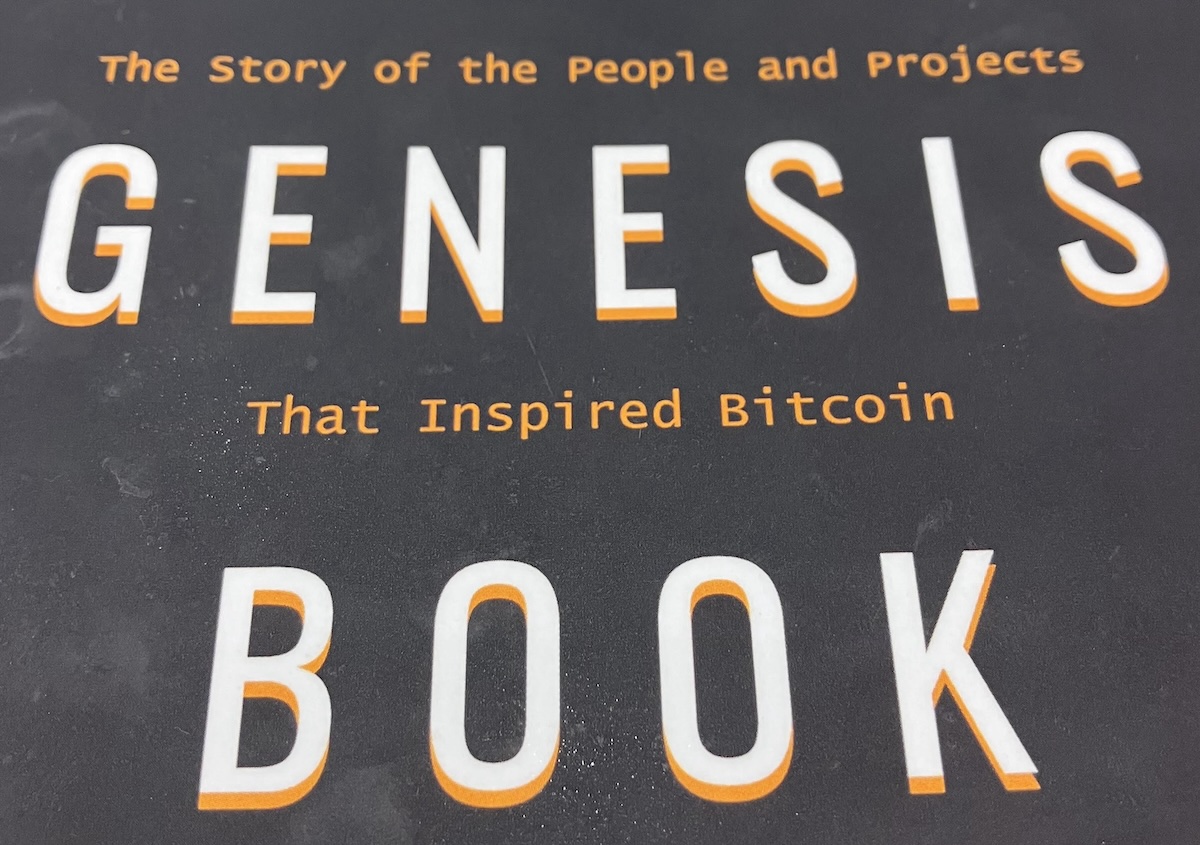
When Aaron van Wirdum's The Genesis Book
came out a few months ago I bought it immediately. It's a concise history of the people and inventions that led to Bitcoin - the perfect title to buy for the shelf.
This isn't a book of new insights by a historian - it's an overview, for people who want to know the broad strokes of the historical traces that led to Bitcoin. Aaron does a great job of summarizing the math, cryptography, people, and cypherpunk developments. It's what the author set out to do, and they did a great job of it. It's a readable account that will add something new to the knowledge of any reader, and quite a lot that's new for the person just dipping their toes into the story of bitcoin.
It's a great credit to the author that they manage to fit their book into just under 300 pages. It's an easy read for people who want an overview of historical roots, and who will enjoy the vignettes along the way. Others have covered some of these stories in greater detail, but that's fine if you consider this book a bit of a guide to developments rather than an encyclopedia.
No short account of bitcoin will satisfy everyone. The parts in the book about Hayek's role in Bitcoin are maybe a bit overstated, but this is a popular way of viewing the history of bitcoin. If there's anything negative to say about the book it's really along these lines; that some people receive too much emphasis and others too little, but that's part and parcel with attempting to write a book like this. The author could have picked dozens of other people to mention but they need to be judicious to make this a story that a reader can follow. The origins of bitcoin are complex and many people played small roles, and some of these roles will never be known. That's how technology is developed.
There's a number of short diversions that add a bit of colour to what might otherwise be gleaned from Wikipedia or other online summaries of precursor technologies. On page 185 is a bit of the history that's new to me: Cynthia Dwork and Moni Noar's paper on preventing spam through solving math puzzles. This work preceded Adam Back's more well-known implementation, and apparently is the first publication that described proof-of-work. In a male-dominated story, it's great to read a bit about the wide variety of people that contributed to the story of bitcoin. The book is filled with little asides like this that provide extra colour on the technological development.
There's more to the book than just stories about programmers. There's also coverage of the culture. A late chapter about cypherpunks was an inspiring read for me. That era seems quite over to a reader in 2024, but it's inspiring to read what's gone on in the past. People with a dream and access to computers.
The 1970s and 1980s laid the foundation for the global computer industry today. Read this book to get a sense of how some of these developments particularly contributed to the 2000s era launch of cryptocurrency.
This is a Creative Commons-licensed book published by Bitcoin Magazine Books. I bought it on Amazon, and I'd encourage anyone else to do so to support the author, but it's also available for free to anyone who can't afford a copy - which is a nice alignment with the ethos of crypto.
